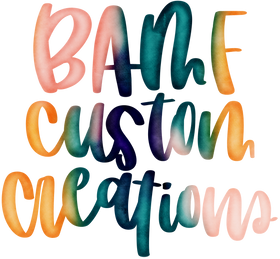Collecting State Taxes: Etsy vs. Shopify
One of the comments I get most frequently when I compare Shopify and Etsy is that Etsy collects and remits state taxes for you and Shopify doesn't automatically do that.
Well there is a reason why Etsy collects state taxes on every order and why Shopify isn't required to.
I sell online, how do I know if I need to collect other taxes for other states?
On June 21, 2018, the Supreme Court ruled 5-4 in the South Dakota v. Wayfair that individual states can mandate that businesses who do not have a physical nexus in a state can still be required to pay state taxes to other states if they meet the economical nexus.
Economical vs Physical Nexus
Sales tax nexus occurs when your business has some kind of a connection to a state, since the ruling, that can be a physical or economic connection, aka nexus.
An economical nexus is making a certain number/amount of sales in a state, depending on the state this could be an and/or situation. Sales include dollar amount and/or number of transactions. Every state has a different minimum that must be met in order for you to have an economical nexus in that state. For example, in Arkansas, you have an economic nexus if you have made over $100,000 in that state OR had 200 or more separate transactions to buyers in that state.
A physical nexus is having a physical presence in relation to business activities in a state. Business activities can include having an office, store or other location in a state (to include a home office), having an employee, sales person, contractor, etc. in a state, owning a warehouse or storage facility in a state, storing inventory in a state, having third party affiliates in a state, and/or temporarily doing physical business in a state for a limited amount of time (like a trade show or craft fair).
If you feel you have a physical and/or an economical nexus in a state, I would get into contact with that state’s taxing authority to determine whether or not you have a sales tax nexus, and to find out what you need to do to register taxes with that state. You can use this website (https://www.taxjar.com/states/) to find out the contact information for every state’s taxing authority.
Which states have an economical nexus and what is it?
Below is an image, updated October 2020, that shows which states have economic nexus laws enacted, states that have no legislation yet, and which states do not have sales tax. (Credit to TaxJar)
Every state that has economic nexus legislation has their own requirements and minimums – there is no real base line but they can be as low as $10,000 per year in gross revenue or as high as $500,000.
This link is a great, updated resource, on different nexuses in every state that has legislation to find out if you qualify for an economic nexus in another state that you do not have a physical nexus in.
https://www.salestaxinstitute.com/resources/economic-nexus-state-guide
Why does Etsy collect taxes from every state on orders and Shopify doesn’t?
Under the South Dakota v. Wayfair ruling, came legislation in regards to marketplace facilitators. Several states have created legislation that requires marketplace facilitators to collect and remit sales tax on behalf of their third-party sellers’ transactions. These laws benefit the states because they can collect more sales tax from fewer entities, which results in simpler compliance for the states.
Marketplace facilitator is defined as anyone that provides a forum that lists or advertises taxable tangible personal property for sale by marketplace sellers; directly or indirectly collects receipts from the customer and remits payments to the marketplace seller (you); and is compensated for such services (i.e. part of all the fees they charge).
A marketplace facilitator is a business or organization that contracts with third parties to sell goods and services on its platform and facilitates retail sales. If you own a shop on Etsy – you are contracting with Etsy to assist in selling your tangible taxable goods.
Examples of marketplace facilitators are Amazon, eBay, Etsy & Walmart.
Shopify is not a marketplace facilitator. Because Shopify is not considered a marketplace facilitator they do not fall under any legislation in relation to marketplace facilitators. If you are using Shopify as a seller, you are responsible for remitting sales tax to the states to which you have a physical and/or economical nexus. Remember that any sales tax you collect, you technically don’t own. Sales tax funds are typically collected from customers, by the seller, and then passed on to that state. If you don’t collect sales tax when you should, you’ll have to pay that sales tax out-of-pocket if the state comes after you. And you may owe some penalty fees.
What if I have an Etsy AND a Shopify or another ecommerce site that is not considered a marketplace facilitator?
Again, the ruling in each state is different on what meets their economic nexus minimums, but at this point you will need to keep track of your nexus between Etsy and Shopify. For example, if you make $70,000 in gross sales on Etsy to Arizona and $45,000 in gross sales on Shopify to Arizona, and Arizona’s threshold is $100,000 (As of 2021, Arizona’s threshold for economic nexus is $100,000) – then you have an economic nexus in Arizona because in total, you made $115,000 gross sales online to Arizona. Etsy only keeps track of your shop on Etsy and does not take into account any other avenues of your sales outside of Etsy.
How can I keep track on Shopify to find out if I hit an economic nexus?
There are a few options. The first is signing up with TaxJar.com. TaxJar, if you download the app on Shopify and integrate it is $19 a month which is ideal if you make less than 200 transactions a month. The next levels are $29 a month for up to 500 orders, $49 a month for up to 1,000 orders a month and $199 a month for up to 10,000 orders a month. If you sign up directly through TaxJar.com it starts at $99 a month.
There may be other apps that may be helpful, but TaxJar is the one I’ve heard the most about from other fellow small businesses.
Otherwise, you could keep track manually by setting up some type of spreadsheet in excel and record each sale you made, the location of the sale and how much it was.
You can also look at it this way, if you have not exceeded $10k in a year, you most likely haven’t met the minimum nexus of a state. If you have made over 200 sales I would look into what states you’ve sold the most to and see if you are close or near to hitting the minimum of sales based on that states requirements, IF they have a transaction requirement.
Enjoy the content and want to show your support? Click the link below!


Leave a comment